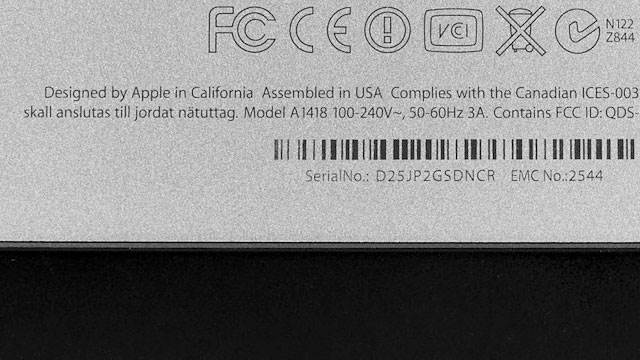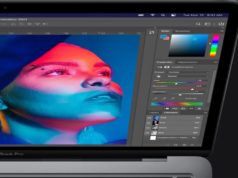![]()
A future line of Macintosh computers built by Apple will have a feature not seen since the ’90s: a “Made in the USA” label. CEO Tim Cook on Thursday announced the company would invest $ 100 million in a Mac plant in the United States in a move that could help boost the economic recovery — and perhaps Apple’s flagging stock price.
The move will in part be full circle for a computer ![]() whose forerunners were born in the California garage of Apple co-founder Steve Jobs and that has been produced in Asia since the early ’90s.
whose forerunners were born in the California garage of Apple co-founder Steve Jobs and that has been produced in Asia since the early ’90s.
Interesting Timing
Cook’s announcement came a day after Apple shares took their biggest nosedive in four years, falling 6.4 percent, or $ 37.05, to close Wednesday at $ 538.79. That meant a loss of $ 34.9 billion in market capital. Some analysts were dumbfounded by the turn, but others saw it as a sign of recognition that competition in the smartphone and tablet ![]() markets — now Apple’s top revenue producers — is starting to take a toll.
markets — now Apple’s top revenue producers — is starting to take a toll.
The U.S. manufacturing news changes the channel on that bad news and highlights the company’s ability to invest capital, though the $ 100 million is a drop in the bucket of Apple’s holdings.
NBC broke the news from Cook Thursday morning that an existing line of computer production for Macs will be moved from China to the U.S. The exec also told Bloomberg BusinessWeek “we’ll be working with people, and we’ll be investing our money,” suggesting partners in the U.S. venture.
Apple has not revealed further information ![]() about which computers will be produced here. The company has faced considerable criticism over working conditions and wages at the Foxconn plants in China where iPads, iPods and iPhones are produced.
about which computers will be produced here. The company has faced considerable criticism over working conditions and wages at the Foxconn plants in China where iPads, iPods and iPhones are produced.
Despite the timing, the announcement seems part of a long-term goal and plan.
“Apple would not likely change manufacturing for PR purposes,” said Michael Gartenberg, a technology analyst at Gartner Research. ” I would imagine it’s a goal of Apple to invest as much as they can in the U.S. while staying competitive and profitable. From Mr. Cook’s comments it’s clear they believe they are capable of doing so.”
But another analyst, Charles King of Pund-IT, noted that public opinion, particularly after this year’s economically divisive presidential race, has been increasingly anti-corporate.
“Since the 1980s, businesses and corporate leaders in the U.S. have accrued huge economic and political power but there are serious and growing questions about just how that has benefited the citizens and taxpayers who often directly subsidized that largess,” King said.
Scoring Brownie Points
So by investing in American jobs and productivity, Cook appears to be thinking proactively to position Apple as a good corporate citizen as Congress during the second Obama administration mulls legislation that could impact profitability.
But King noted that Cook’s statement leaves open the possibility that Apple may for the first time outsource some of its computer manufacturing processes, which could affect the price tag.
“Given the premium pricing of the Mac product lines, they probably offer high enough margins for Apple to pursue this course profitably,” King said. “Then again, Macs represent such a financially minuscule part of Apple’s overall business that whatever hit the company might risk would be well worth the ‘attaboy’ praise the company will earn from political leaders.”






